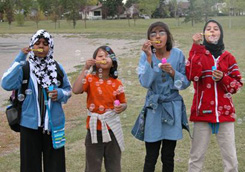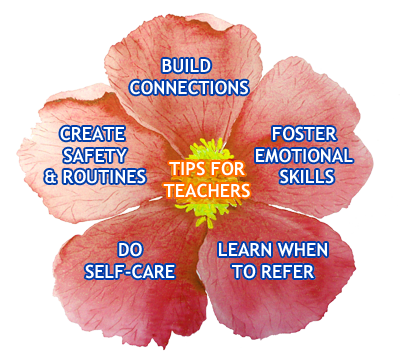For students with refugee backgrounds academic success is connected with engaging in the school community.
 Teachers can use their pedagogical expertise more effectively when they understand how to strengthen student engagement. This is particularly true when a student’s traumatic experiences have a direct result on learning and behaviour in the classroom.
Teachers can use their pedagogical expertise more effectively when they understand how to strengthen student engagement. This is particularly true when a student’s traumatic experiences have a direct result on learning and behaviour in the classroom.
Research has shown that many of the obstacles faced by refugee students in the classroom can be explained by the neurodevelopmental effects of trauma. These include, but are not limited to:
- challenges processing information, organizing material and establishing goals
- challenges attending to classroom tasks, regulating emotions and attention
- challenges comprehending cause-effect relationships and taking others’ perspectives
To learn more see Helping Traumatized Children Learn and What Does Fear Look Like?

Experienced and effective teachers of students with refugee backgrounds were asked how they engaged students in five key areas to strengthen student engagement:
- create safety and routines see also Sample Threats Sample Triggers
- build connections
- foster emotional skills
- do self care
- learn when to refer
Additional strategies for setting behavioural expectations, developing social skills, establishing fair consequences and reinforcing desired behaviours can be found in the Alberta Education resource Supporting Positive Behaviour in Alberta Schools.



